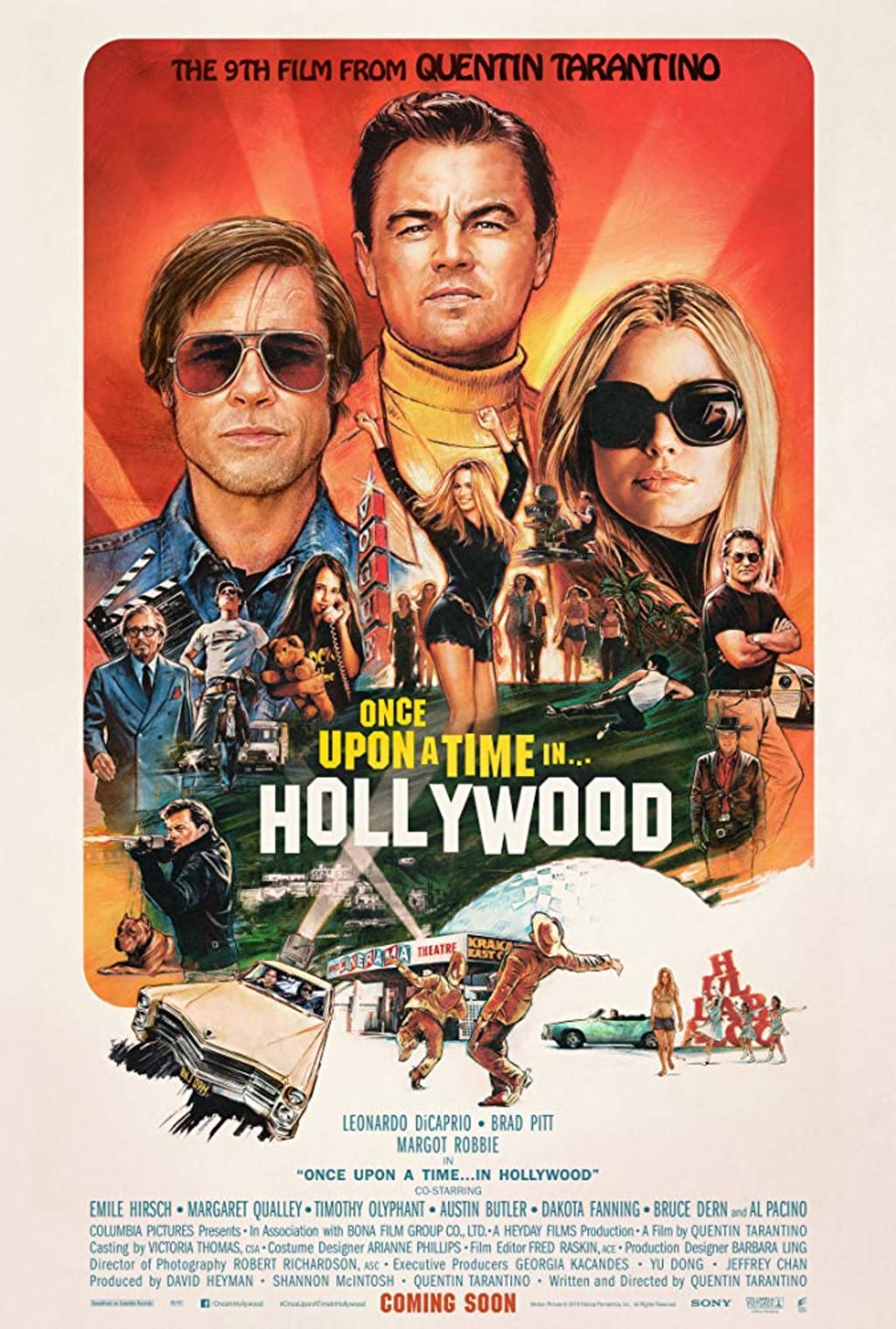'Once Upon a Time in Hollywood' Is Just One Boring Fairy Tale
Movie Looks Good but Mundane Characters Can’t Save Tarantino’s Latest

If someone said that you could go back in time and spend a few days on the Hollywood scene in 1969, the answer would be obvious. You would anonymously shadow the onset movements of Clint Eastwood, Roman Polanski, Sharon Tate, Bruce Lee and Steve McQueen. You’d also score a party at the Playboy Mansion, get a look at the goings on around town and even witness the seedy underbelly connection to the Manson family. Well, that’s exactly what One Upon a Time in Hollywood does for us. But there’s one big problem, and it weighed heavily in the two and half hours I was forced to endure.
Life on a Hollywood set among glamorous actors is probably just as uneventful as the eight hours we spend in our work days. So despite the imagery and the chance to view the icons above, you are a captive witness to the mundane banality we know from our lives.
So much for life with the boring parts left out.
Early on, I got a good sense that I was in for a lot of squirming in my seat, and the red flag raised with the appearance of Al Pacino. Playing a well connected Hollywood producer, his delivery didn’t fill the screen in the least and completely sucked the wind out of a decent set up that introduced the two main characters.
Buddies Don’t Really Mesh
Rick Dalton (Leonardo DiCaprio) is a typecast TV western actor (who I can only assume is based on Clint Eastwood) and has formed a symbiosis with his gruff stuntman Cliff Booth (Brad Pitt).
We are endearingly incited in the first two scenes, and the pairing oozes a contrast that begs chemistry. The star teeters on the edge, while his sidekick’s complete downplay and disregard of Hollywood lunacy provides a soft landing spot.
So as Dalton stresses the bleak prospect of going to Italy to revive his career, Booth’s advice doesn’t seek any deep introspection. “I say you just go to Rome and make spaghetti westerns,” reasons Pitt, who mostly amounts to a glorified gopher and drinking buddy.
As on point as the non-zen advice is, the interplay that Tarantino tees up never really materializes. All the other esoteric stuff that critics look for— I’m sorry and I’m not that smart. If I’m in for Quentin Tarantino, I expect the humorous exchanges to be cutting edge.
The best we got was Brad Pitt playing off his dog (and that’s not to diminish several pleasing moments). The same goes for a dig at the expense of caricature-like depiction of Bruce Lee, and the overall portrayal really suffices for the only character worth following.
Brad Pitt Matters and DiCaprio Doesn’t
Still, the lack of any meaningful dialogue only allows Pitt’s mannerisms to amuse. So we are deprived the side splitting moments he masterfully delivered in Inglorious Bastards.
Nonetheless, we are certainly compelled as Booth gets drawn in by a young Manson girl (Margaret Qualley) and pays a visit to the isolated hideaway. The tension builds as you wonder whether the A-List star will get an early exit. This eventually segues into the twist Tarantino throws into the history, but following DiCaprio’s arc has no real appeal.
He drinks, he’s on the verge of unraveling, and his acting skills diminish in kind. Dalton also faces prospect of seeing Hollywood from the outside looking in, and that is nothing new. Even so, the descent would be fine if it was done with anything that held your attention.
Looks Don’t Matter and the Finale Offends
So again, we’re just following him like a day in a very boring life. The critics do really like the whole look, though, and watching Sharon Tate traverse the boulevard in all her glory is very cool. But don’t give me cinematography, I can get that for free by walking through the woods behind my house or staring up at the New York skyline.
Still, in Tate, you really feel the heartbreak of someone very alive. The sentiment is exemplified in the way the starlet can’t help drink it all in by going into a movie theater to see herself in Wreaking Crew with Dean Martin.
Thus, the finale is set up for a tragedy we know too well. But once upon a time applies again, and I may need a spoiler alert here.
I found rewriting the abrupt end of the Third Reich to be gloriously uplifting. As for this reimagining, I found the turn of events to be offensive. I may chalk the difference up to Stalin’s take.
“One death is a tragedy, a million is a statistic.”
You’re not really personally connected to those millions who would have been saved had Hitler been killed. But seeing Sharon Tate avert disaster and continuing a life cut short comes off as an insult her tragic end.
Of course, I think it’s okay if others rejoice like I did in Inglorious Bastards, but more importantly, there’s certainly very little to celebrate in this film.
Please Like My Movie Page on Facebook
Author can be reached at [email protected]
About the Creator
Rich Monetti
I am, I write.






Comments
There are no comments for this story
Be the first to respond and start the conversation.